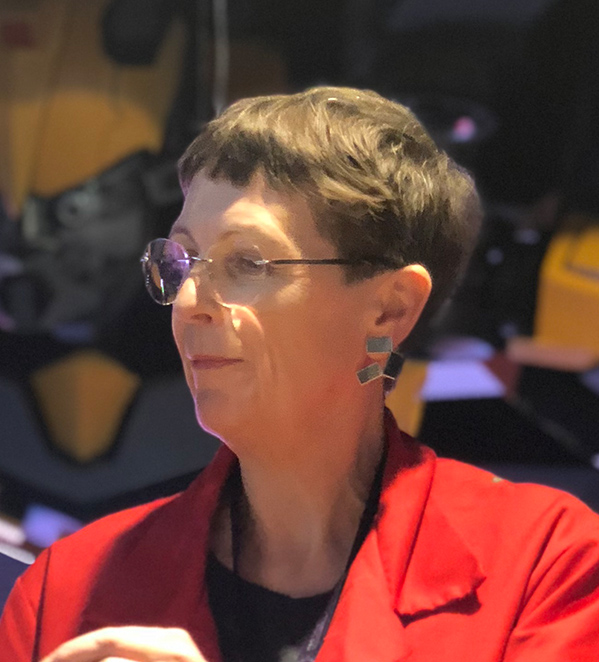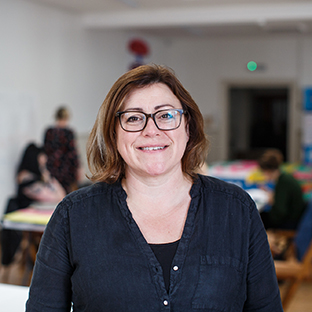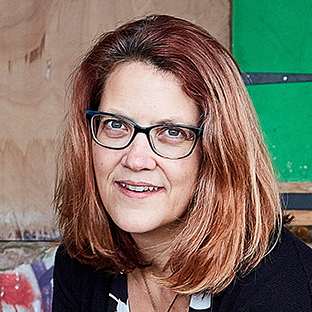Inclusive regeneration projects leveraging heritage and culture are a particular strength and asset to Fellowship in the South East of England, with many based in coastal communities. Kate Kneale FRSA, Lisa Oulton FRSA, Jess Steele outline their potentially transformative programmes and ideas that seek to serve vulnerable coastal communities, which are facing existential challenges as a result of Covid-19.
The amplifying effect of Covid-19 is laying evident pre-existing structural inequalities, alongside newly emerging fault lines. So when research by the RSA identified coastal towns as being at risk of high job losses alongside rural towns due to their economies being geared towards hospitality and retail, we were concerned about how this would compound inequalities further. Coastal towns often have poor transport infrastructure, poor digital connectivity, poor healthcare facilities, an aging population and disproportionately high levels of deprivation. They are also one of the UK’s most fragile and vulnerable environments.
An active group of Fellows and friends in the South East have been working together to explore how we might build bridges to recovery and to a better future for our coastal communities. The lockdown has made many people more appreciate of the fresh air, light and open spaces of the coast and in the future more of us are likely to work from home or in small social hubs, reducing the need to commute into large urban centres in order to do knowledge-based tasks.
Can coastal communities use this opportunity to challenge the expectation that excellence and growth can only occur in large conurbations? This is an opportune time to question the belief that proximity and physical access to London and other regional centres equates to quality. It is true that road and rail are vital to maintaining the supply chain for manufacturing but is it true of digital productivity?
Business recovery
Does the assumption that the growth of seaside economies is hampered by having a catchment area that is 50 percent water still hold true? What happens if we switch the lens and do not approach the ‘problem’ from urban centres looking out, but from within the coastal communities? What if we were to expect excellence, innovation and prosperity from our coastal knowledge-base and scale that sector; creating skilled local employment not dependant on importing talent?
In the UK there are 5.9 million small and medium size enterprises (SMEs) of which 4.5 million have no employees; they are sole traders. Similarly striking, almost one in eight UK businesses are creative businesses, a sector that is growing at five times the rate of the UK economy as a whole. Nationally, SME businesses account for three fifths of employment and about half the turnover in the UK private sector; the South East is, or rather was, before Covid-19, home to 940,000 SMEs.
Recognising these pre-existing conditions and areas of opportunity can provide us as Fellows some key areas of exploration moving forward. We could aspire to establish a collective approach to apprenticeships or work retention schemes to cascade from larger SMEs to small and sole traders. The businesses are already present that would make this possible and would only serve to benefit coastal regions in the long term. Furthermore, the expansion of sole trading businesses could be supported by work experience schemes; supporting business development alongside training for career starters within a business sector that has nearly a million employees in the South East alone. Finally, we should work to reposition creative businesses as valuable and vital drivers of coastal economy recovery.
Engaging young people
The young people in our less advantaged communities could be our untapped answer in building bridges to the future.
In Dover, super-charged engagement with young people led to ‘lending’ them the company, Future Foundry, which introduces 16 to 30 year olds to the creative industries, the circular economy, entrepreneurship, activism and behaviour change. Creative and digital fabrication facilities support making, salvage, re-manufacturing and production. Between 75-80 percent of these young people are less advantaged, dealing with long-term health/mental health issues, complex family and housing situations. Future Foundry’s mentoring and pastoral care is critical for resilience.
The result is two innovations seeking to make extraordinary change in the town. Closing the Loop, Future Foundry’s zero waste, ethical business and activism programme, gained traction very quickly. It appealed to young people weary of unethical and hypocritical business and a lack of visible, environmental leadership.
Inspired to take action, young makers with common views and passions started working together to affect tangible change in the community. Future Foundry handed resources over to them and the first ever Dover Pride was created, despite older voices saying it could never happen. It was a youth-led, zero-waste event and a glorious achievement.
It is essential that young people who do not ‘present’ as middle class (for reasons of cultural capital, confidence, education level, vocabulary, accent) are not excluded and overlooked in favour of those considered as having ‘talent’ or ‘promise’. They need support and training to become creative producers, not just participants; in charge of the means of production and able to amplify their voices for their communities. In our experience it is those who experience the problems who have the passion and incentive to make change.
Can innovations like theseinform the approach to tackle the challenges for recovery? Many young people are passionate about the environment and can be creative producers; as such they can help tackle future challenges. This includes the future of high streets, many of which are closing. Can young people, inspired to create positive change and build businesses with positive impact, help us shape clean, safe, inclusive, tolerant towns with a future?
We have seen pristine beaches, returning wildlife and reduced pollution during Covid-19. As society unfreezes, can young people lead the way in tackling the negatives of the visitor economy, can they encourage others to join them? Colourful celebrations and events have been essential to build a sense of place, pride and community in a struggling town and diminishing town centre. Given this is needed perhaps now more than ever, young people can play a key role in generating community spirit in the face of social distancing.
Investing in communities at scale
We need to give communities the opportunities to invest in themselves and each other. There is £10 trillion of private household wealth in the UK, in equity and pensions. If it were possible to unlock just one percent of that it would amount to £10 billion. The crisis has revealed a wider interest in community, neighbourhood, mutual aid, belonging and participating. It is time for the money to follow.
There are numerous ways for government to support a flowering of community investment. Some of them are shiny and new, others appeared in this 2012 wish list. First, we can encourage and support the development of Public-Commons Partnerships (PCPs), alternative investment approaches with ‘self-expansive dynamics’ that create new circuits of collective ownership by passing on surplus to generate new PCPs/community businesses. Second, we need to pump-prime a National Grid for Neighbourhoods based on solidarity between places to enable the distribution of just-enough funds, with a proportion of surpluses returned to the grid for others to use.
Third, we need a Neighbourhood Jobs Initiative, allowing people on Universal Credit to work in step-up jobs that are good for the neighbourhood, to top up their income, build their networks and grow their own independent futures. Fourth, we need generous tax relief for investors in community shares, creating an immediate boost to capitalise the community benefit societies. Fifth, locally-led Neighbourhood Bonds are emerging; these need to be linked to measurable social impact in exchange for government underwriting to encourage investment. And finally we need to give social investment tax relief (SITR) a new focus on purpose and outcomes rather than sectors; for example, allow housing but only for community land trusts or equivalent.
While helping communities invest in themselves and each other is important, more generally government and other funders should support emerging ideas, leaders and relationships. It is people and how they work together that creates value and only by creating value can we afford to make a life worth living for everyone.
These are just some of the challenges and ideas that will be addressed by the new ‘Coastal Lightbulb Group’ we have been convening through the RSA. Bringing together a small group of Fellows and friends, our aim is to offer connection and grounding in the context of Covid-19, illuminating current and future challenges, learning from each other as we innovate and adapt, and building a bottom-up voice for coastal communities. Please get in touch with Claire Doran (RSA South East England Area Manager) if you would like to register your interest to join.
Kate Kneale runs a design studio in Margate and creates social impact events. Jess Steele is a community entrepreneur and thought leader in the field of community-led regeneration based in Hastings. Lisa Oulton is a creative producer and social entrepreneur based in Dover, her company Future Foundry supports young people to build careers in the Creative Industries.




Be the first to write a comment
Comments
Please login to post a comment or reply
Don't have an account? Click here to register.